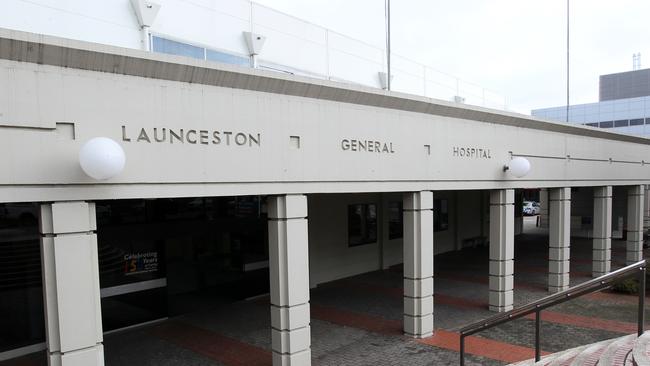Launceston General Hospital’s poor medical treatment blamed for man’s avoidable death
A coroner says Launceston General Hospital staff should have known one of their patients – who died days later – had an infection and needed antibiotics. FULL REPORT >>
Police & Courts
Don't miss out on the headlines from Police & Courts. Followed categories will be added to My News.
- Antipsychotic drug under microscope in Hobart inquest into 36-year-old man’s death
- Coroner finds Ambulance Tasmania procedures lacking following elderly woman’s death
POOR medical treatment at Launceston General Hospital has been blamed for the “entirely avoidable” death of a man who passed away after undergoing elective surgery.
On Thursday, Coroner Simon Cooper released his findings into the death of Graeme Charles Davis, who was admitted to hospital on January 15, 2018 – but died 12 days later after staff failed to administer antibiotics on time when he developed sepsis.
Mr Cooper also found that the wrong cause of death had been recorded on Mr Davis’ Certificate of Death.
He said Mr Davis had been admitted for a bladder operation, which was performed without incident, before the 56-year-old was transferred to the hospital’s high dependency unit.
He initially showed a steady improvement post-surgery, but five days later was beset with nausea, vomiting and abdominal pain.
A few days later, it was “now apparent he had a serious infection”.
Mr Davis’ temperature reached 39 C, his blood pressure was elevated and tests showed he likely had a bacterial infection, but still antibiotics were not administered.

Mr Cooper said antibiotics still weren’t commenced on January 22 or 23, “seemingly because the urology team appeared to think Mr Davis’ wound was not infected”.
On January 25, planning for Mr Davis’ discharge commenced.
But as the day went on, it became obvious he now had a separate infection with fever, elevated white blood cells and inflammation.
Antibiotics were commenced intravenously, but Mr Davis fell unconscious that night before dying just after midnight on January 27.
Mr Cooper said Mr Davis’ death was not reported to the coroner, and that his cause of death was wrongly recorded as pulmonary embolism, instead of sepsis, on his death certificate.
He said no evidence of pulmonary embolism was found during a post-mortem examination.
Mr Cooper said it “should have been obvious” to Mr Davis’ treating team that he was suffering from sepsis from at least January 20.
“Antibiotics were required to treat Mr Davis’ sepsis. No antibiotics were prescribed until a short time prior to his death, by which time it is apparent it was too late,” Mr Cooper said.
“In summary, I am of the view that Mr Davis’ death was entirely avoidable. He died because of poor medical treatment.”
Kathrine Morgan-Wicks, Department of Health secretary, said Launceston General Hospital had noted the coroner’s comments.
“In the rare instance that an adverse event occurs, these are thoroughly investigated to inform improved practices and protocols moving forward,” she said.
“On behalf of the Launceston General Hospital, I extend my sincere condolences to Mr Davis’ family and loved ones.”



